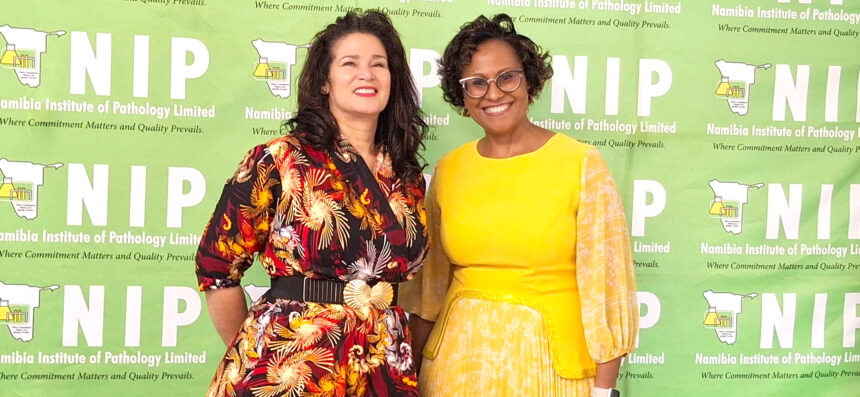Rudolf Gaiseb
The Namibia Institute of Pathology (NIP)’s six new research centres of excellence (CoE) will reflect the real health challenges Namibians face, and produce real-world solutions.
NIP CEO Kapena Tjombonde said as part of their research efforts, the decision to establish the centres was based on the demographics and challenges faced in the country.
Speaking at the fundraising breakfast last Friday, she noted that the NIP Research Unit has taken this mandate to heart.
This is by actively engaging in basic and applied research, which advances scientific knowledge and seeks practical solutions to the most pressing health challenges.
The event was sponsored by the Mobile Telecommunications Company (MTC), Motor-Vehicle Accident Fund (MVA), Ongwediva MediPark and Momentum Metropolitan Empowerment Fund. “Our research efforts are aligned to our new operating model as detailed in our transformational strategy that will see the establishment of specialised centres of excellence. The institution will also localise most of the specialised tests through these centres,” Tjombonde stated.
She said the molecular medicine CoE will open its doors mid-year.
This will be followed by the Anatomical Pathology CoE, which will be opened in Oshakati late this year, if not early next year.
A Microbiology/Infectious Diseases’ CoE will be established in Rundu, and a Cytogenetics/Reproductive Biology CoE in Keetmanshoop.
The last two include the Clinical Pathology CoE in Swakop and the Medical Mycology CoE, which will open in Omuthiya.
National Commission on Research, Science and Technology (NCRST) CEO Anicia Peters urged investment in research.
“By investing in biomedical research, we are investing in a healthier Namibia. We are ensuring that future generations have access to cutting-edge medical advancements, and that our healthcare professionals have the knowledge and tools necessary to fight emerging health threats and improve prevention strategies,” she said.
“The Covid-19 pandemic served as a stark reminder of the importance of scientific preparedness and rapid medical research. It was through research that institutions were able to develop vaccines and create diagnostic tools. Countries were able to come up with national response plans and implement public health strategies that saved countless lives worldwide,” Peters noted.
She urged that biomedical research must not only be reactionary but proactive, anticipating future challenges and working towards long-term solutions for diseases such as cancer, HIV/AIDS, tuberculosis and non-communicable diseases that continue to burden Namibia’s healthcare system.


